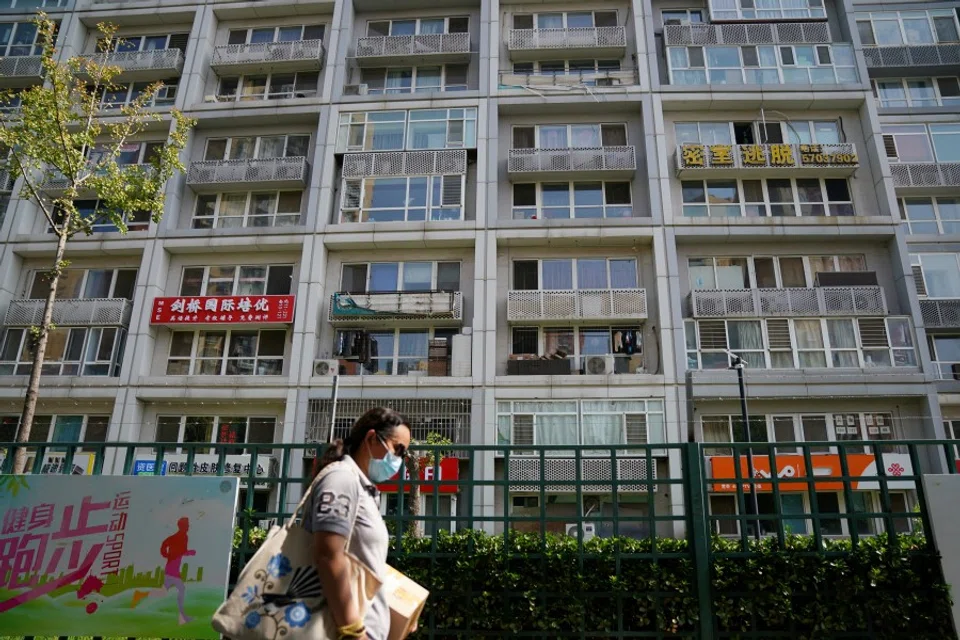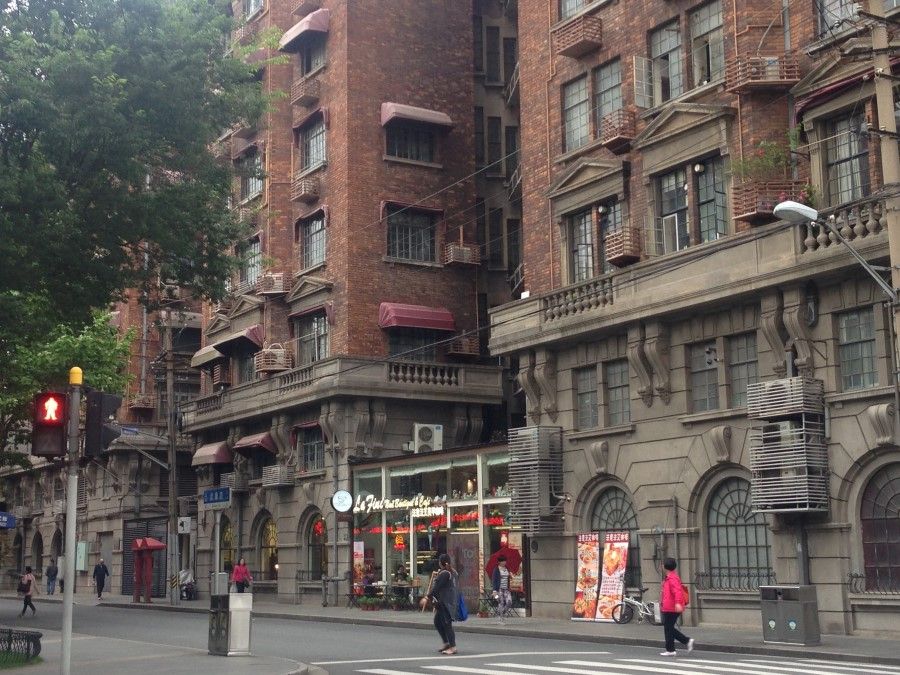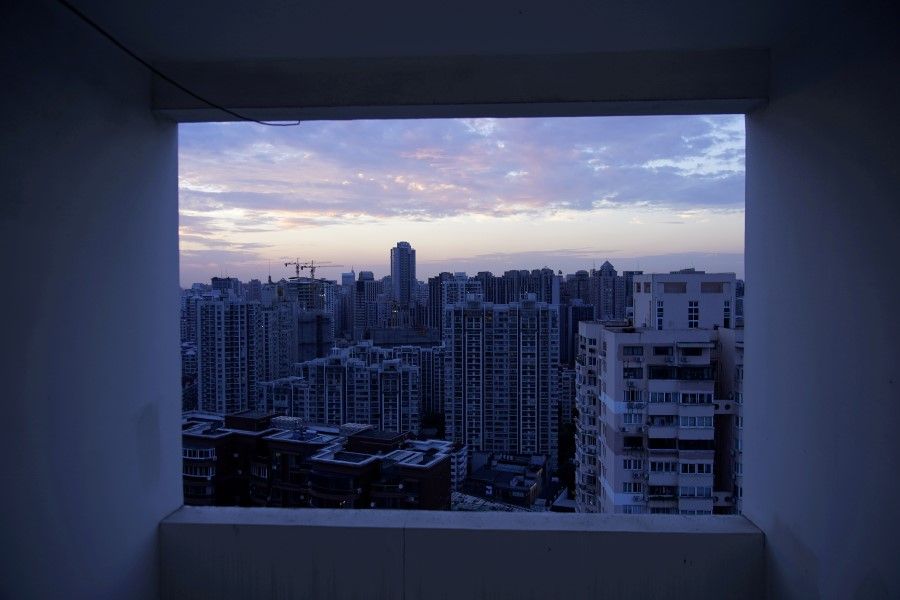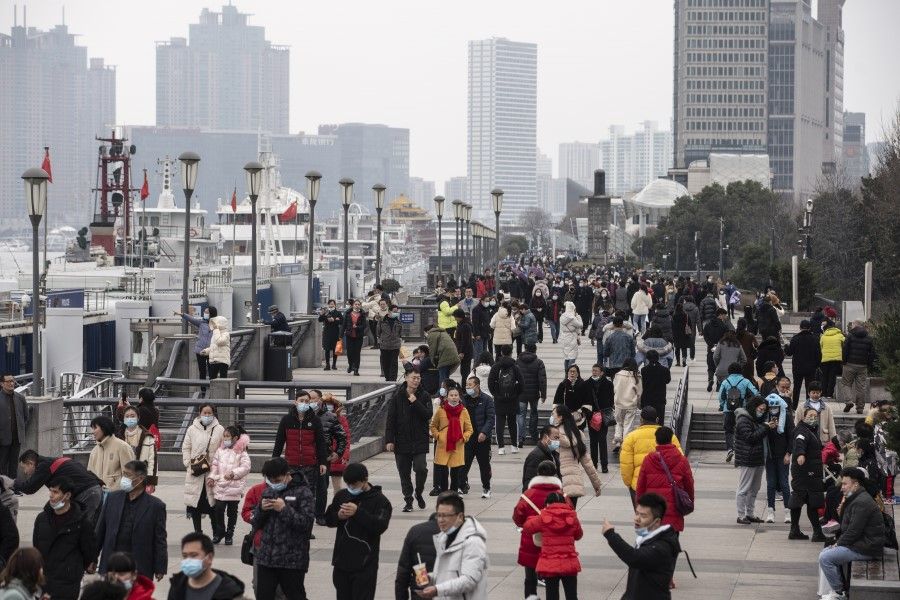The Chinese property bubble that just won't burst

On "Internet Celebrity Street" Wukang Road (formerly Route Ferguson) in Shanghai, there is an interesting location - a particular store where people often stop and gather outside, but few who actually go in.
The store in question is a tiny property agency, with an entire glass wall covered with advertisements for rental and sale of nearby housing, from old units of less than 60 sqm going for nearly 10 million RMB (S$2.06 million), to bungalows priced with a long string of zeros that go up to over 100 million RMB. Looking at all these sky-high prices, non-locals click their tongues while thanking their stars they do not need to buy a home in Shanghai.
Sky-high property prices
To those who live and work in Shanghai, high property prices are not just fodder for conversation, but a heavy price to pay to settle in this first-tier city. According to real estate platform Anjuke, in December 2020, the average price of resale homes in over 67 cities in China was 15,787 RMB per sqm, while the figure in Shanghai was 52,533 RMB, over three times the national average, and second only to Beijing's 57,563 RMB. This month, the figure for Shanghai has gone up to 52,804 RMB.

With government policies to control prices, new homes in Shanghai are in fact cheaper than resale homes. The average price of new homes in December 2020 was 50,364 RMB per sqm. While this is still far higher than in other Chinese cities, those in Shanghai looking to buy homes would consider themselves lucky to be able to make a purchase. This curious price phenomenon has prompted many buyers to flock to new properties, with thousands of people having to ballot as they compete to make a purchase.
A friend who has worked in Shanghai for many years finally decided to buy a home this year. After doing some research, she found that the new homes within her budget were all on the outskirts of the city, at least 90 minutes away from her workplace. She quickly dropped the idea of living on her own, and her considerations also changed from what suited her, to locations where prices would rise the fastest, with less competition. In the end, she decided to apply for a few new developments, and buy whatever that was "bestowed" upon her.
With the national wave of buying new homes, property prices in first-tier cities such as Shanghai and Shenzhen rapidly came out of the short winter brought by the pandemic last year, and even started to heat up from the end of 2020. Last month, China Banking and Insurance Regulatory Commission (CBIRC) chairman Guo Shuqing described real estate as the biggest "rhino" at the moment in terms of China's financial risk, while the Central Economic Work Conference held at the end of 2020 also reiterated that homes were for living in, not for speculating or flipping (房住不炒).
"Thirty years ago, the central government said it would control property prices. Those who believed that homes were for living in ended up without homes to live in." - Chinese netizen

Measures do little to cool red-hot property market
Since the start of 2021, the People's Bank of China and CBIRC have drawn red lines for property developers and banks in financing and lending, while major cities are also coming up with a rush of measures to limit buying and cool down the property market. But even with these measures, it seems that buyers' resolve to enter the market remains unshaken - in January 2021, there were four projects in Shanghai with over 1,000 applicants. My friend says that there are already long queues of prospective buyers for a few new projects launching this month: "Everybody feels that property prices will definitely continue to rise, and they might as well enter the market early rather than late."
Belief in rising property prices is driving buyers to stream into the market, and challenging the central government's "not for speculation" strategy that was introduced four years ago. Despite these restrictions leading to a quiet period in the Shanghai property market over the past three years, once the credit environment loosens up - as it did last year - buyers will swarm in and drive prices up again.
A Google search for the keywords "房住不炒" (not for speculation) throws up "joke" as a related term. The internet community's attitude to that particular line is also reflected in this online post: "Thirty years ago, the central government said it would control property prices. Those who believed that homes were for living in ended up without homes to live in."
Over the years, there have been ceaseless warnings about China's property bubble, but it seems that so far this seemingly fragile bubble has not yet burst, thanks to the continued rapid growth of China's economy, which has been a firm prop for the property market. Furthermore, medium and large cities attract talent, which is a direct catalyst for demand in property buying, and exacerbates the imbalance in demand and supply for homes and drives up property prices.
Figures show that China's birth numbers over the past 30 years is 142 million fewer than over the previous 30 years, which means that the property market may face a crisis of lack of demand in future.

Property seen as best investment
Also, the decades of prosperity in the property market has also led a growing number of people to see real estate as the best investment tool, where they will never lose. Buying property has become the easiest and most solid investment route. A netizen summed it up: First, gold prices fell, then stock prices, then Bitcoin; only property prices have never dropped, and whoever does not speculate in property is a fool.
However, China's GDP growth rate will slow in line with its economic transformation, and it will gradually form less of a pillar for property prices. Prices in some third- and fourth-tier cities have already plunged, given last year's weak economy. Furthermore, China's birth rate has continued to fall, which will lead to lower demand for property. Figures show that China's birth numbers over the past 30 years is 142 million fewer than over the previous 30 years, which means that the property market may face a crisis of lack of demand in future.
"Not for speculation" is one sign of a healthy and mature economy, and a pre-emptive move by policymakers to prevent the property bubble from bursting. But based on the current situation, it will take more time and more effort at various levels to get people to see this slogan as more than empty words, or a joke.
